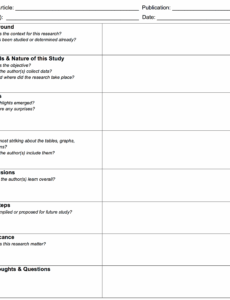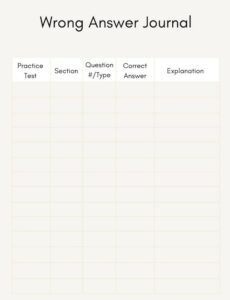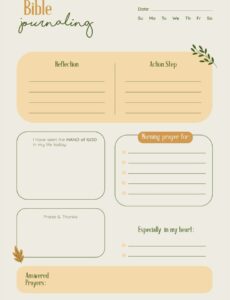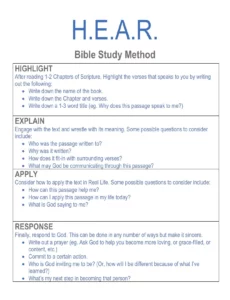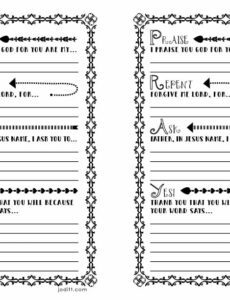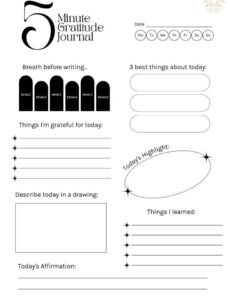Student life can feel like a whirlwind of classes, assignments, social activities, and future planning. It’s incredibly easy to get swept away by the current, feeling overwhelmed and struggling to keep track of everything on your plate. In this fast-paced environment, finding a moment to pause, reflect, and organize your thoughts isn’t just a luxury; it’s a necessity for thriving both academically and personally.
That’s where a well-structured daily journal template for students comes into play. It’s more than just a place to jot down notes; it’s a powerful tool designed to bring clarity, reduce stress, enhance self-awareness, and ultimately, help you achieve your goals. Think of it as your personal assistant, mental health check-in, and strategic planner all rolled into one indispensable resource.
Why Every Student Needs a Daily Journal
Beyond the immediate academic pressures, developing a consistent journaling habit offers a multitude of benefits that extend into every aspect of a student’s life. It provides a dedicated space for mental clarity, allowing you to untangle complex thoughts and emotions that might otherwise contribute to stress and anxiety. Regular reflection can significantly improve your emotional regulation, helping you to understand your triggers and develop healthier coping mechanisms. It’s also an excellent way to set short-term and long-term goals, breaking them down into manageable steps and tracking your progress over time.
Journaling also plays a crucial role in enhancing your focus and improving study habits. By regularly documenting your day, you can identify patterns in your productivity, pinpoint common distractions, and recognize your most effective study times. This self-assessment can lead to more intentional and efficient learning strategies. Furthermore, the act of writing itself can aid memory retention, as articulating your thoughts and daily learnings helps solidify them in your mind.
Over time, this practice of daily reflection fosters remarkable personal growth. You’ll begin to notice subtle shifts in your perspective, gain deeper insights into your strengths and areas for improvement, and cultivate a stronger sense of self. This journey of self-discovery is invaluable, preparing you not just for academic success, but for the challenges and opportunities that lie beyond the classroom. It empowers you to become a more mindful, resilient, and proactive individual.
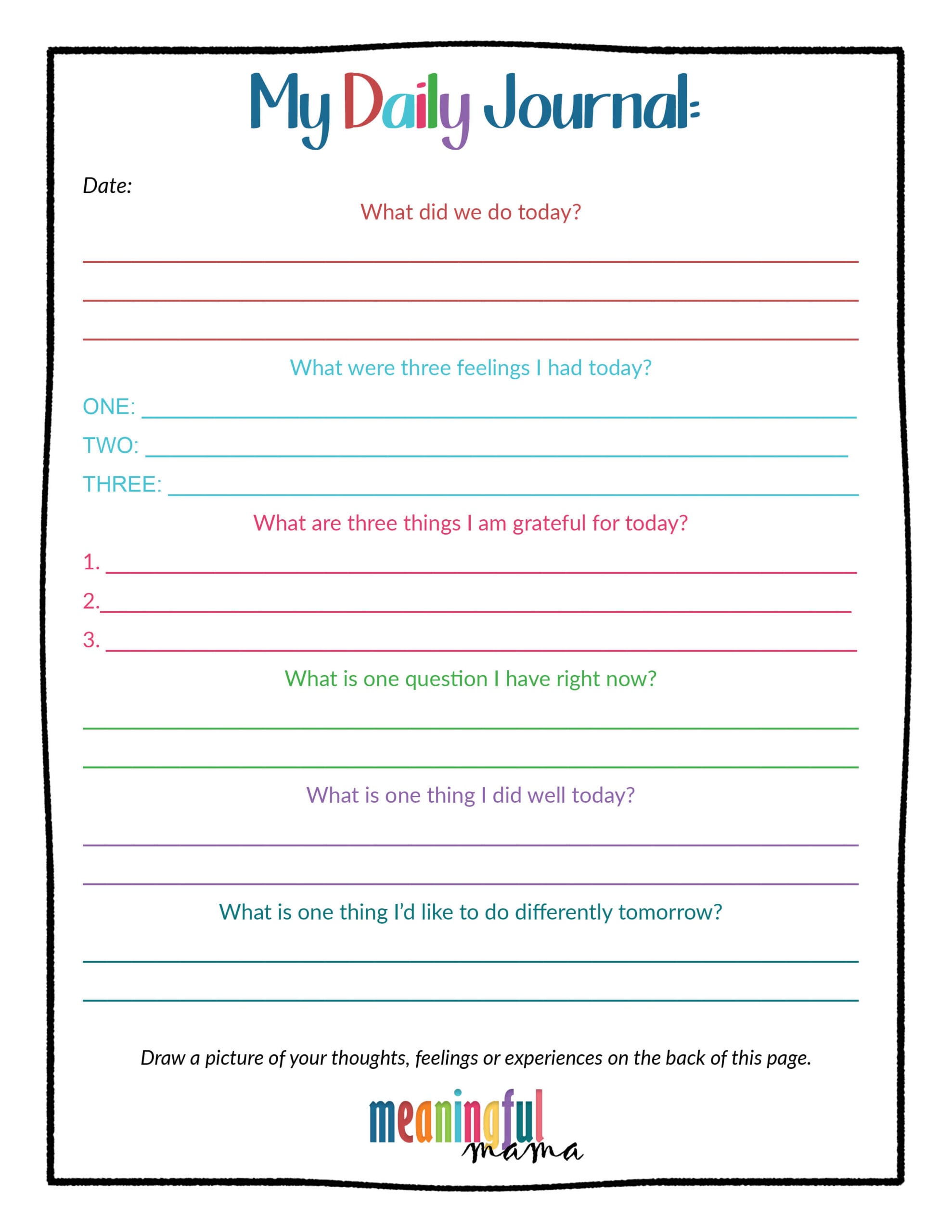
To truly harness these benefits, it helps to have a framework, which is precisely what a daily journal template for students offers. It provides structure without stifling creativity, ensuring that you cover essential areas while still allowing room for free-form expression. Getting started is simpler than you might think; just dedicate a few minutes each day, perhaps in the morning or before bed, to this enriching practice.
Key Benefits of Daily Journaling
- Reduces stress and anxiety
- Improves focus and concentration
- Enhances self-awareness and emotional intelligence
- Boosts memory and learning retention
- Facilitates goal setting and progress tracking
- Encourages problem-solving and critical thinking
Getting Started with Your Journal
Beginning your journaling journey doesn’t require elaborate tools or a perfect plan. Find a quiet spot where you won’t be disturbed, choose a notebook or a digital app that feels comfortable to use, and commit to showing up consistently. Even five minutes a day can make a significant difference. Don’t worry about perfection; the goal is honest reflection and consistency.
Crafting Your Perfect Daily Journal Template
When it comes to creating a daily journal template for students that truly serves your needs, flexibility and personalization are key. While a template provides structure, it should never feel rigid or restrictive. The idea is to create a scaffold that guides your thoughts, ensuring you touch upon important areas without making the process feel like another chore. This allows you to integrate journaling seamlessly into your busy student schedule, making it a helpful tool rather than an added burden.
Start by considering what aspects of your day and inner life you want to track or reflect upon. A good template balances practical organization with personal reflection. For instance, you might want a section for your academic tasks, but also a space to check in with your emotions or note down things you’re grateful for. The beauty of a template is that it can evolve with you; what works one semester might need tweaking the next.
A highly effective daily journal template for students typically includes core elements that encourage both foresight and hindsight. Morning sections can focus on setting intentions and priorities for the day, while evening sections provide an opportunity to review what happened, what was learned, and how you felt. Including prompts helps to overcome writer’s block and ensures you’re addressing a range of topics critical for student well-being and academic performance.
Remember, this is your personal space. Feel free to experiment with different sections, add doodles, or switch up the order until it feels right. The most effective template is the one you look forward to using consistently. Whether you prefer a physical notebook, a bullet journal, or a digital app, the power lies in the habit you build around it.
- Date and Day: A simple yet essential starting point.
- Morning Mood Check: How are you feeling today? (e.g., energized, calm, stressed, excited)
- Top 3 Priorities for Today: What absolutely needs to get done?
- Academic Tasks: List assignments, study topics, deadlines.
- Personal Goals/Habits: Track health, exercise, reading, or other personal commitments.
- Gratitude Corner: Three things you’re thankful for today.
- End-of-Day Reflection: What did you achieve? What did you learn? What challenged you?
- Notes/Ideas: A free-form space for anything else that comes to mind.
Embracing the practice of daily journaling is a profound step towards a more organized, reflective, and fulfilling student experience. By consistently engaging with a customized template, you’re not just recording your days; you’re actively shaping your growth and building resilience. The simple act of putting pen to paper, or fingers to keyboard, can transform how you navigate the complexities of academic life and beyond, fostering a deeper connection with yourself and your goals. This habit, once cultivated, becomes an invaluable companion, helping you to remain grounded and focused amidst the ever-changing demands of your journey.
